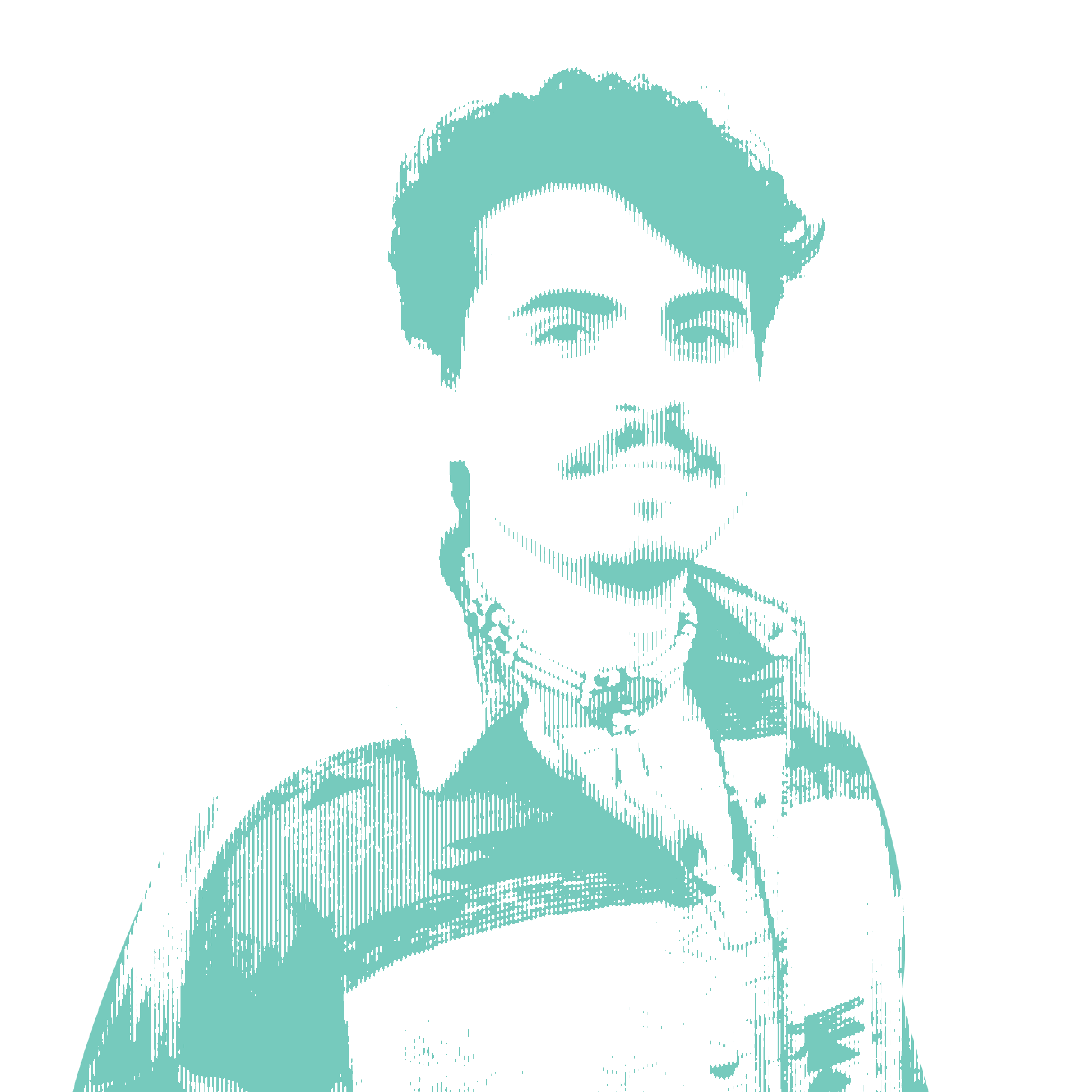Pulitzer Center Update November 19, 2023
Connecting Tomorrow’s Decision Makers With Today’s Issues
Country:
Our Campus Consortium team works to inform, equip, and inspire students for their futures as they prepare themselves for careers against the backdrop of climate change, emergent technologies, international conflicts, and impending elections. Throughout this fall semester, we connected Pulitzer Center grantees and community experts with over 2,000 collegiate students to engage with today’s most pressing news stories through class visits, presentations, conversations, and workshops.
Venezuelan journalist Ricardo Barbar visited four campus partners and multiple K-12 classrooms to speak with over 375 students about his country’s failing health care system and the Prodavinci project Exposing Inequalities. Conversing in both Spanish and English, public health students and community health workers asked Barbar questions about the deteriorating health care institutions and community-based support that has developed in response.
“I’m a journalist because I don’t want anyone to have to tell this story to the next generation,” Barbar said. “I want there to be testimony of what is happening so no one can tell the people of the coming generations lies of what is going on.”
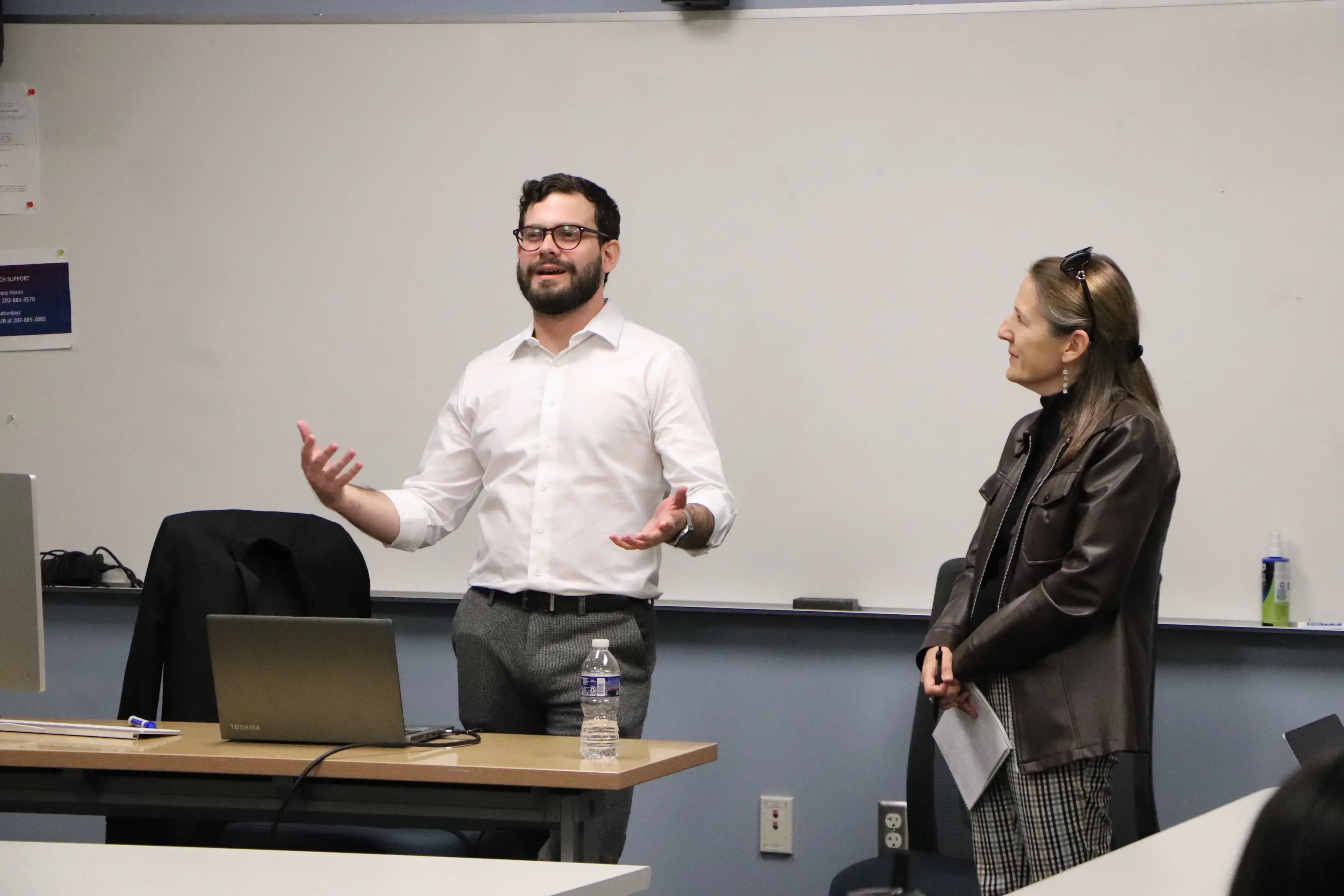
With artificial intelligence (AI) as one of the topics at the top of minds for students and faculty, we brought several of our 2022 AI Accountability Fellows to campuses to help students explore the vast range of stories emerging alongside this tech. At South Dakota State University, Ari Sen encouraged embracing new tech in reporting, while remaining mindful of its risks and complexity. Karen Hao advised Syracuse University students to take a decolonial lens to understand the economic and labor impacts of the rapid globalization of AI.
“I am so grateful we could host Ari through our partnership with the Pulitzer Center,” said Joshua Westwick, SDSU's director of the School of Communication and Journalism. “For our journalism students, understanding the technology and how to better report on this technology will be important in their future careers.”
“The questions you’re asking help me,” Hao told the students. “[The questions] give me new ideas for how I can frame my next story or how I can make it more accessible to an audience. It’s just about trying to constantly think about and keep in touch with the reader that I would want to reach.”
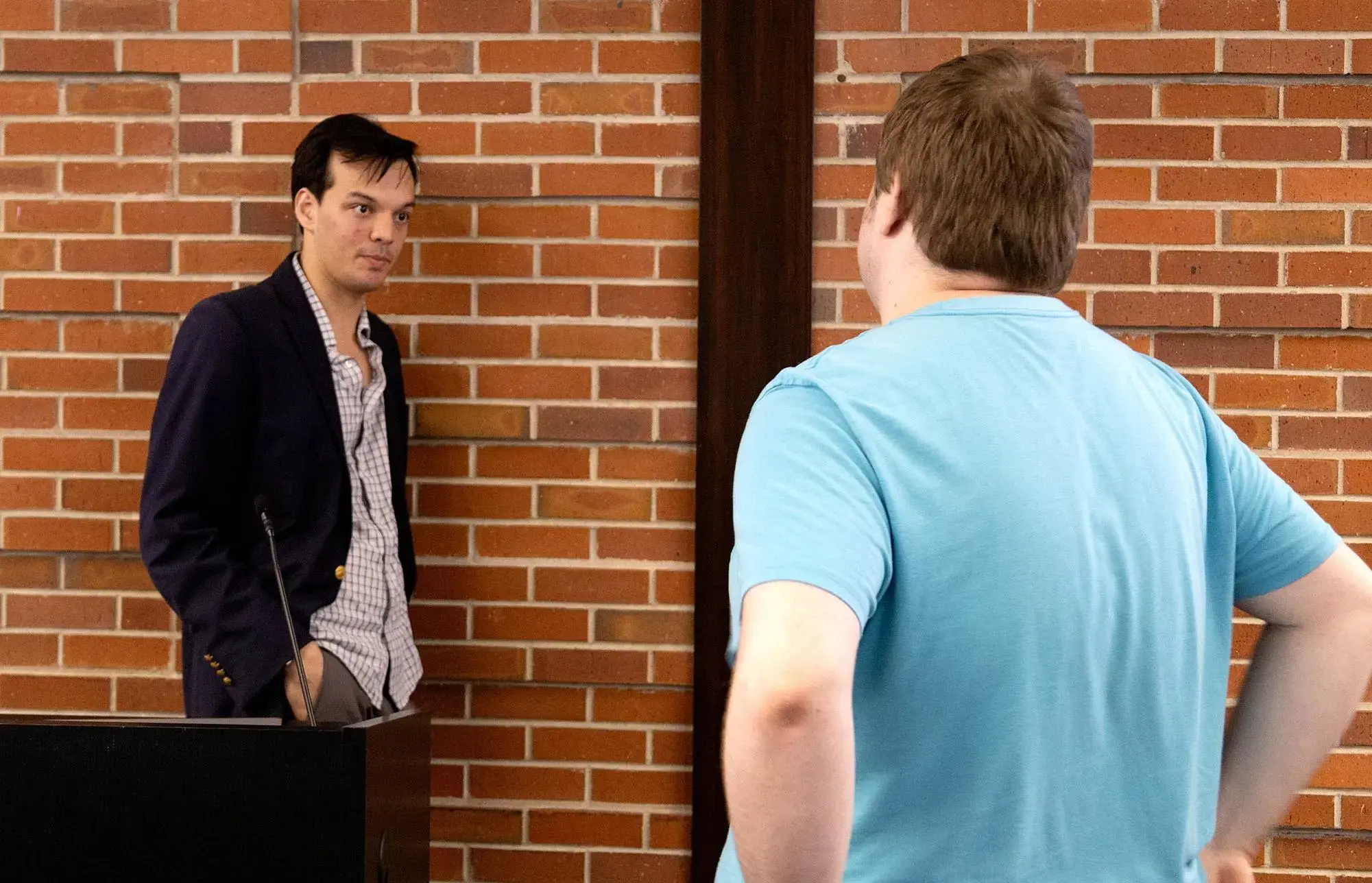
At several campuses, Pulitzer Center Reporting Fellow alums shared how their fellowship experiences prepared them for their careers. Jamaija Rhoades returned to her alma mater, Hampton University, to offer advice on navigating the beginnings of post-grad careers; at Georgetown University, Imran Mohammad Fazal Hoque spoke about his experience as a stateless Rohigya refugee; and Camila DeChalus spoke at LaGuardia Community College on media consumption habits and democracy.
“I enjoyed that [Jamaija] gave honest advice about how life is and can be after you graduate college,” Hampton student Ja’Nia Keith said. “I learned […] that your journey can have multiple paths. You can and should take all the opportunities that come your way.”
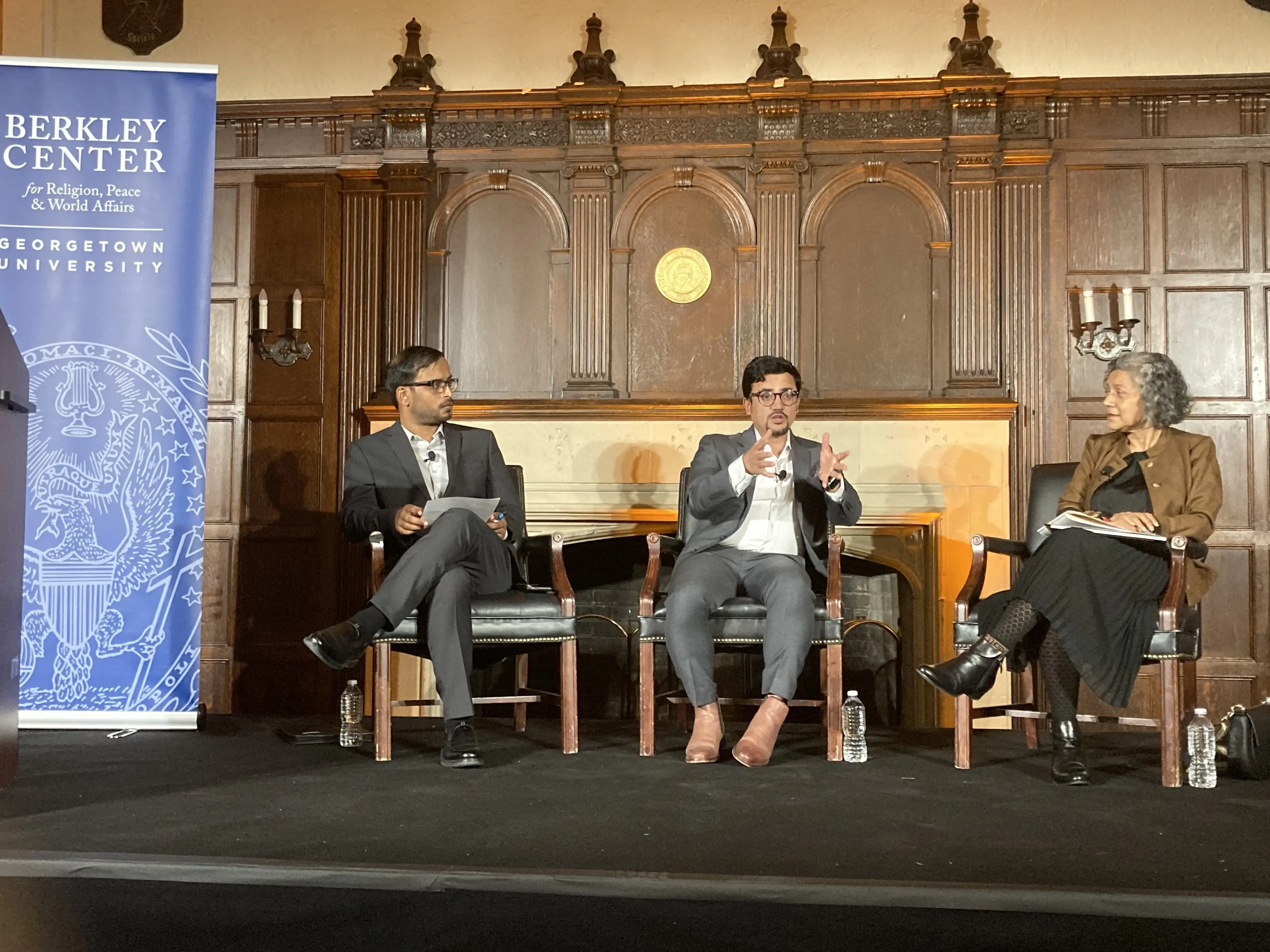
Reporting Fellow Isabella Gomes joined a panel of journalists and community advocates at the University of California, Berkeley’s Gender Forum to examine how to stop sex trafficking and better protect survivors. New York Times journalist Michelle Goldberg, a former grantee and Berkeley School of Journalism alum, joined the panel in conversation with Graduate School of Journalism Dean Geeta Anand.
“Seeds were planted by [the panelists] in the minds of up-and-coming journalists of the near future," Anand said. "Our whole community is deeply grateful […] for your work building this partnership with us to bring interesting, important, brilliant speakers to our school.”

During this year’s Sharp Seminar at William & Mary, grantees Jessica Pishko, Brandi Morin, and seminar adviser Stephanie Hanes worked with aspiring journalists to workshop their story pitches and reporting plans in preparation for their reporting trips to craft a “narrative that will make people care.”
“Journalism is about learning and being curious,” Hanes said. “Journalists are translators and they educate themselves by asking lots of questions.”
“The most important thing, I believe, to do this work and create meaningful stories is relationships. That is the number one thing,” Morin said. “It’s just about getting there, being there, showing up, and being authentic in creating these relationships.”
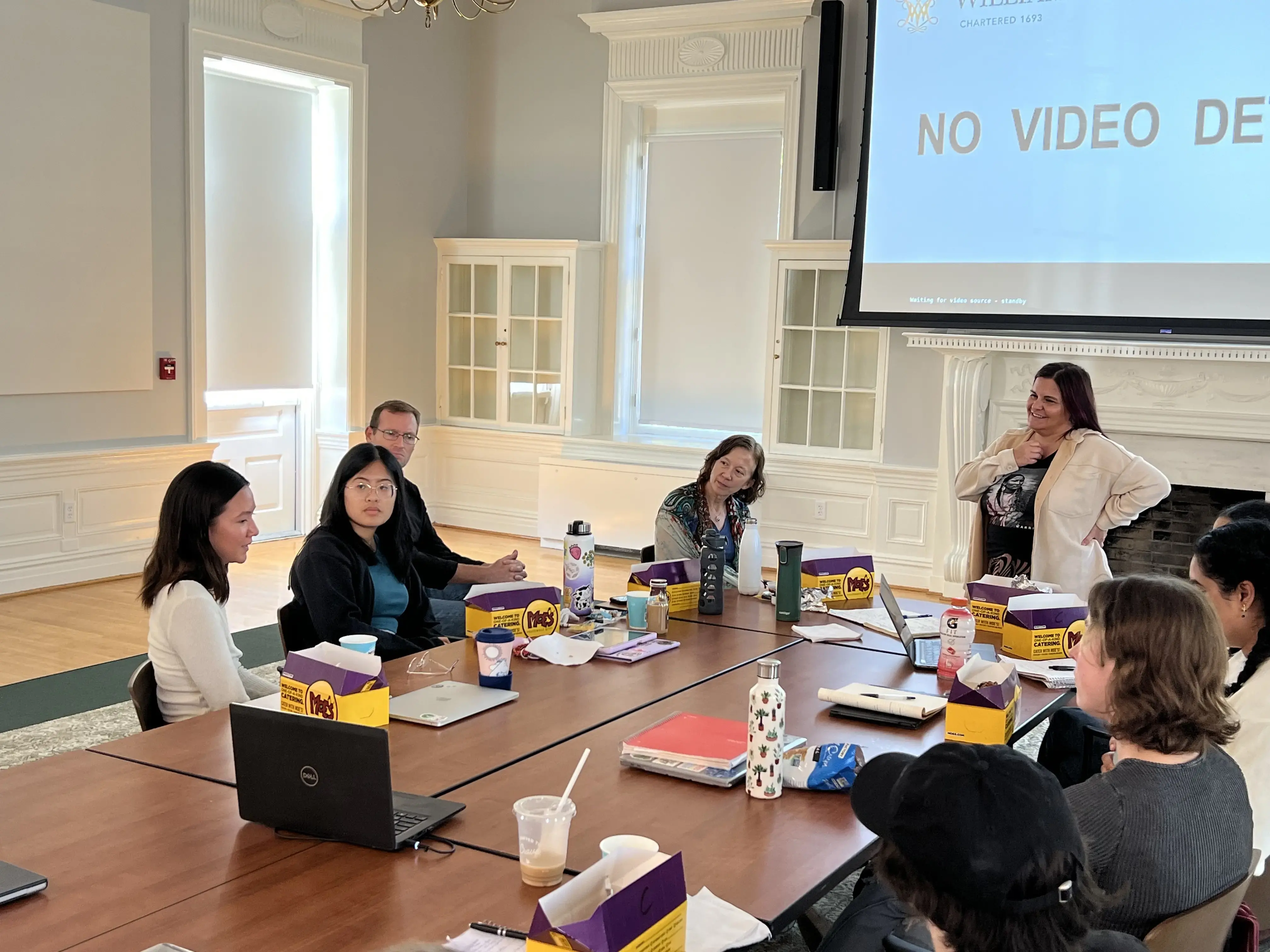
Students and faculty also explored the power of visual mediums to reach audiences. Illustrator, journalist, and grantee George Butler visited the School of the Art Institute of Chicago and the University of Virginia to talk about his deliberately slow approach to breaking-news headlines. Butler draws in real time as a witness, documenting conflict zones, climate issues, humanitarian crises, and social issues for the news in pen, ink, and watercolor. At Southern Illinois University Carbondale, in a virtual presentation to students, photographer and grantee Michael O. Snyder discussed his 10-year process for creating his project The Queens of Queen City.
“Your story,” he advised students, “is only as good as your access,” a sum of trust and time, according to Snyder. “Just because a storyteller shares knowledge, experience, and identity with their topic or subject [...] does not mean that they will tell the story accurately, ethically, or excellently.”
Campuses are increasingly eager to learn how to create engaging and impactful reporting on scientific topics, including climate and health. At Davidson College, Jacob Kushner and Kang-Chun Cheng presented on health misinformation, and Duy Linh Tu and Sebastian Tuinder screened their work, Poisoning of the Chesapeake, and visited a science writing class at the University of Missouri.
“The science doesn’t mean anything if not for the people,” said Tu. “A part of science journalism we learned to fall in love with […] is […] how to connect the science with the human experience.”
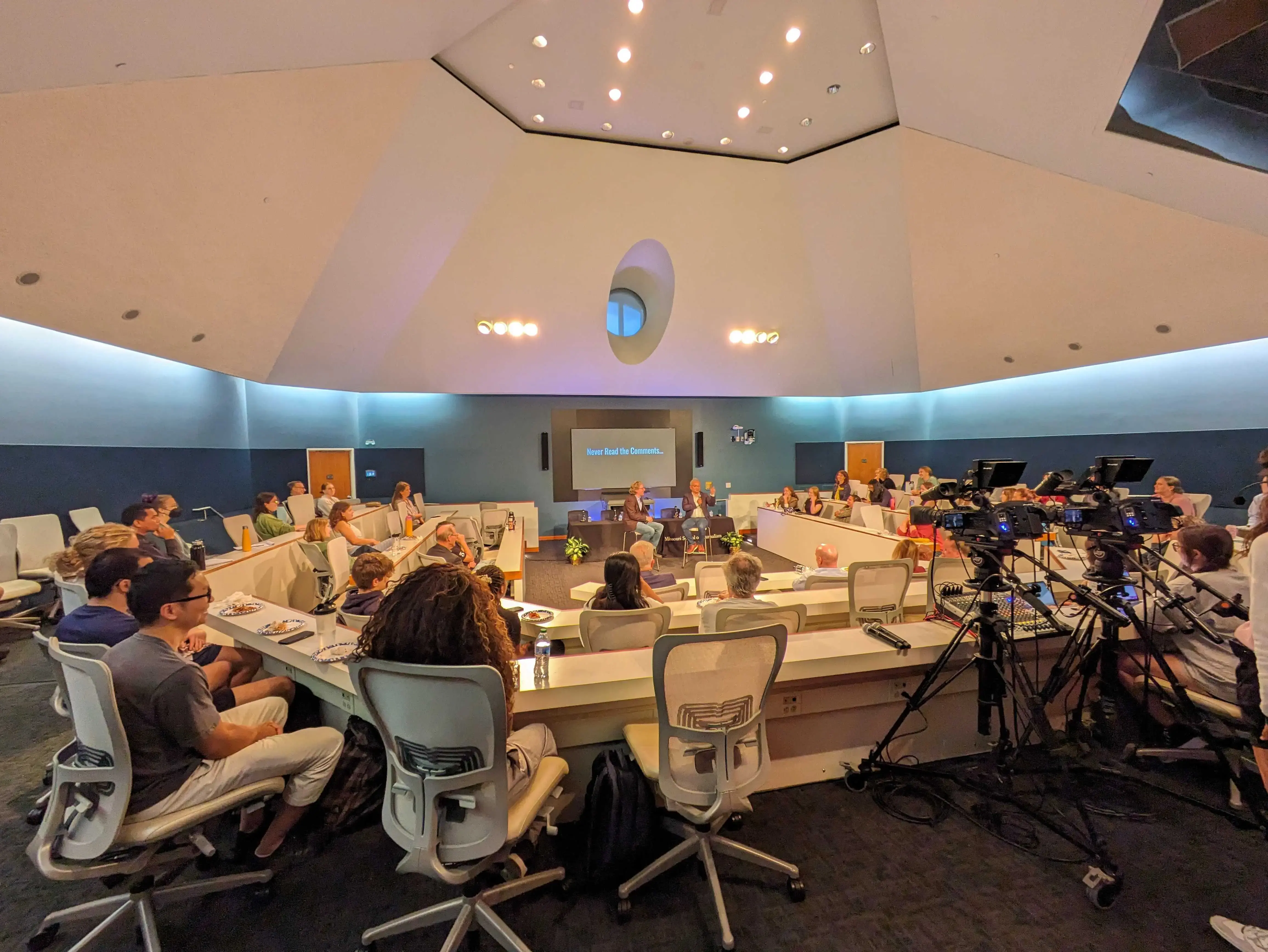
In addition to a community talk and two days of class visits at Washington University in St. Louis, grantee Aryn Baker, senior international climate and environment correspondent at TIME, met with students involved in on-campus media. They spoke about their efforts to dig into stories and sought career advice as they approach graduation.
“I really enjoyed the small group setting with the focus on journalism—it made it easy to ask questions about a field of employment I am interested in, and it was very insightful to hear responses from my peers as well,” student Tim Mellman said.
Lisa Armstrong visited Glendale Community College and Chaffey College to discuss her experiences reporting on trauma caused by natural disasters, health crises, and carceral systems. During her keynote presentation, a formerly incarcerated man told Armstrong that her reporting touched him: “We need to be talking about this,” he said.
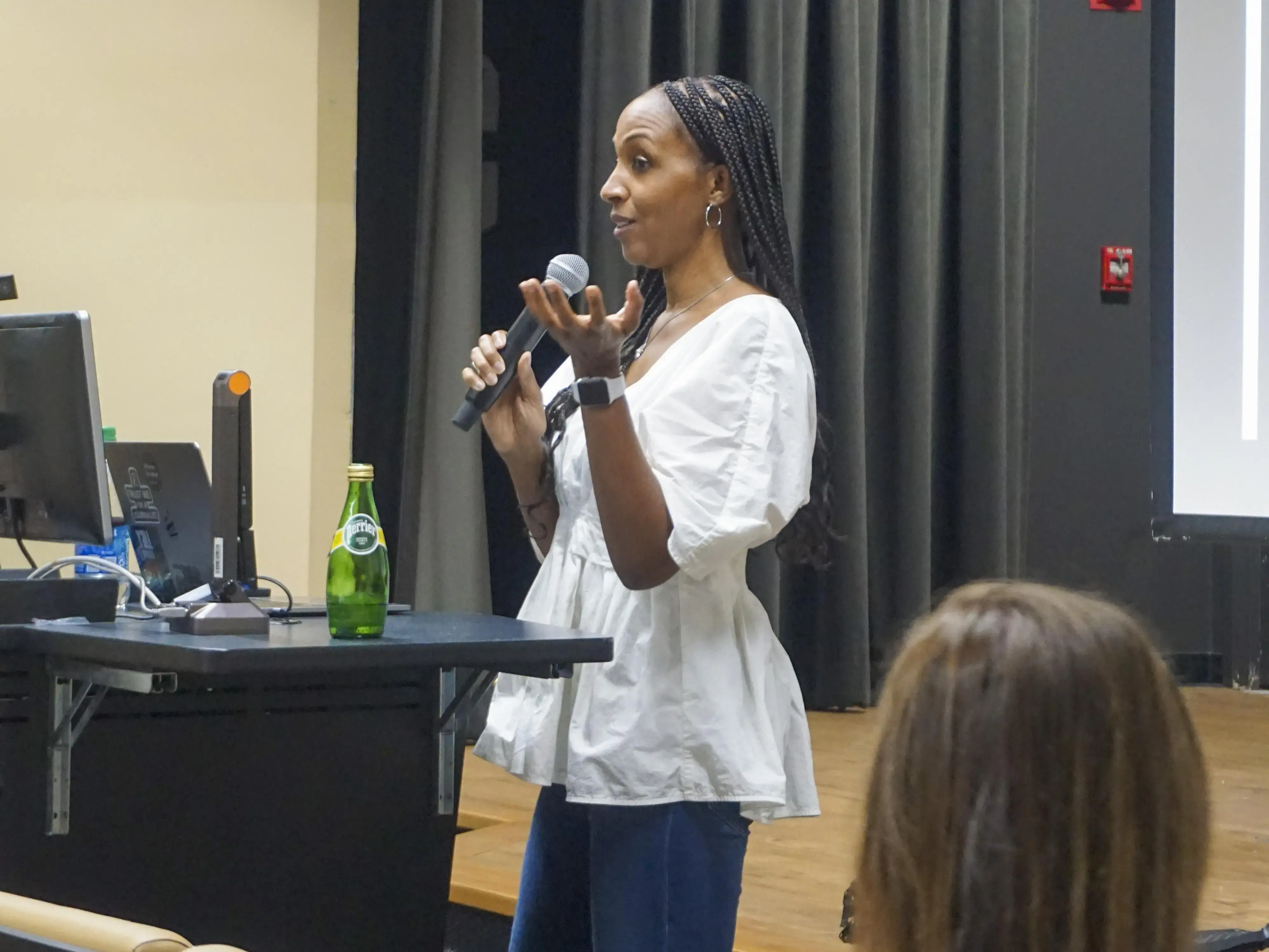
Lisa Armstrong presents to students at Glendale Community College. Image by Ethan Widlansky. United States, 2023.
Other campus events included Fred de Sam Lazaro speaking to both undergraduate and graduate students at Northwestern University Medill about his Under-Told Stories initiative; Anna Sussman reflecting on her reporting on gender at Hunter College; Bonnie Bertram advising on visual storytelling techniques at Westchester Community College; and, at Benedictine University, grantee Hadas Thier sharing her reporting on water access due to legislative and infrastructural neglect.
"This is exactly what I came to [Northwestern] Medill for,” said a graduate journalism student after de Sam Lazaro’s talk.
Our Campus Consortium Team is hard at work wrapping up our last visits of the semester and beginning plans for events to connect grantees to aspiring journalists and future leaders in the new year.



